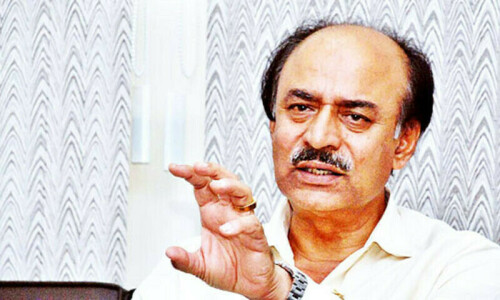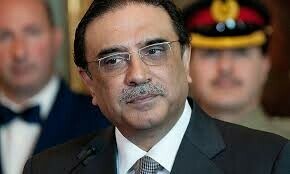RIYADH. Secretary of State John Kerry praised Saudi Arabia as a “very, very important” ally on Monday as he visited the Gulf Kingdom on a mission to soothe strains in the relationship over US policy on Iran, Syria and the Palestinian issue.
Kerry, who is touring the region, met the Saudi foreign minister on Monday morning and was due to have talks with King Abdullah later.
“We have very important things to talk about to make sure the Saudi-US. relationship is on track, rolling forward and doing things that we need to accomplish,” Kerry said in remarks to U.S. Embassy staff.
Washington's relationship with the Saudis was crucial as the region faced changes and challenges from the transition in Egypt to civil war in Syria.
“The Saudis are very, very important to all of us. The Saudis are really the senior player in the Arab world together with Egypt,” he said.
Saudi Arabia, Washington's main Arab ally, is angry over what is sees as a weak foreign policy on the part of the Obama administration which has allowed Israel to continue building settlements in the Palestinian territories and conflict to persist in Syria.
Saudi concerns are also partly founded on a fear that President Barack Obama's moves to reduce tensions with Iran will give Riyadh's main regional foe an opportunity to extend its influence in Arab countries.
Speaking before his meeting with foreign minister Prince Saud al-Faisal, Kerry reiterated that the United States was determined Iran would not get a nuclear weapon.
Kerry's visit is his first since the Saudi intelligence chief warned last month of a “shift away” from Washington and said Riyadh's abdication of its seat on the UN Security Council was a message for the United States.
A senior State Department official, who requested anonymity, played down suggestions of a major rift with Riyadh.
“We have a tremendous number of ongoing discussions, virtually on a daily basis, with senior Saudi officials,” he said.
The official acknowledged that Saudi Arabia opposed Iran's participation in proposed Syria peace talks in Geneva. Riyadh is a leading supporter of the rebels fighting Syrian President Bashar al-Assad, who is a close ally of Iran.
Frustration
The Saudi English-language daily Arab News laid out the kingdom's reasons for frustration.
“Riyadh's alienation from its ally stems from how the US has continued in recent years to drag its feet on securing a peace settlement in Palestine, and most particularly from how it has pursued a wishy-washy policy in Syria,” Jamal Doumani wrote in the newspaper.
In the most senior levels of Saudi government, princes are also exasperated by the US. reluctance to back Egypt's military in July after it overthrew the elected Islamist president.
“The Saudis' position will not be changed until it's proven on the ground that the US is changing its policy,” said Mustafa Alani, an analyst at the Gulf Research Centre in Geneva.
Saudi royals were also disappointed by Kerry's efforts in bringing about an agreement to disarm Syria's chemical arsenal in August after a gas attack in Damascus, Alani said.
“They want a clear commitment from the American side that Geneva 2 (peace talks) will not turn into 3, 4 and 5. And if this process fails to achieve the objective of removing Assad from power, the Americans should change their policy from diplomacy to changing the balance on the ground,” he said.
The US official said Kerry will make clear to the Saudis that Iran would not be welcome at Syria peace talks in Geneva unless it backed a past agreement under which Assad gave up power.
“Iran has not done that, and without that even we couldn't consider the possibility of their participating,” he said.
On ending the stalemate with Tehran over its nuclear programme, the official said: “We frankly completely agree with the Saudis about their concerns.”
In addition to Riyadh, Jerusalem and Bethlehem, Kerry will make stops in Jordan, the United Arab Emirates, Algeria and Morocco.















































Dear visitor, the comments section is undergoing an overhaul and will return soon.